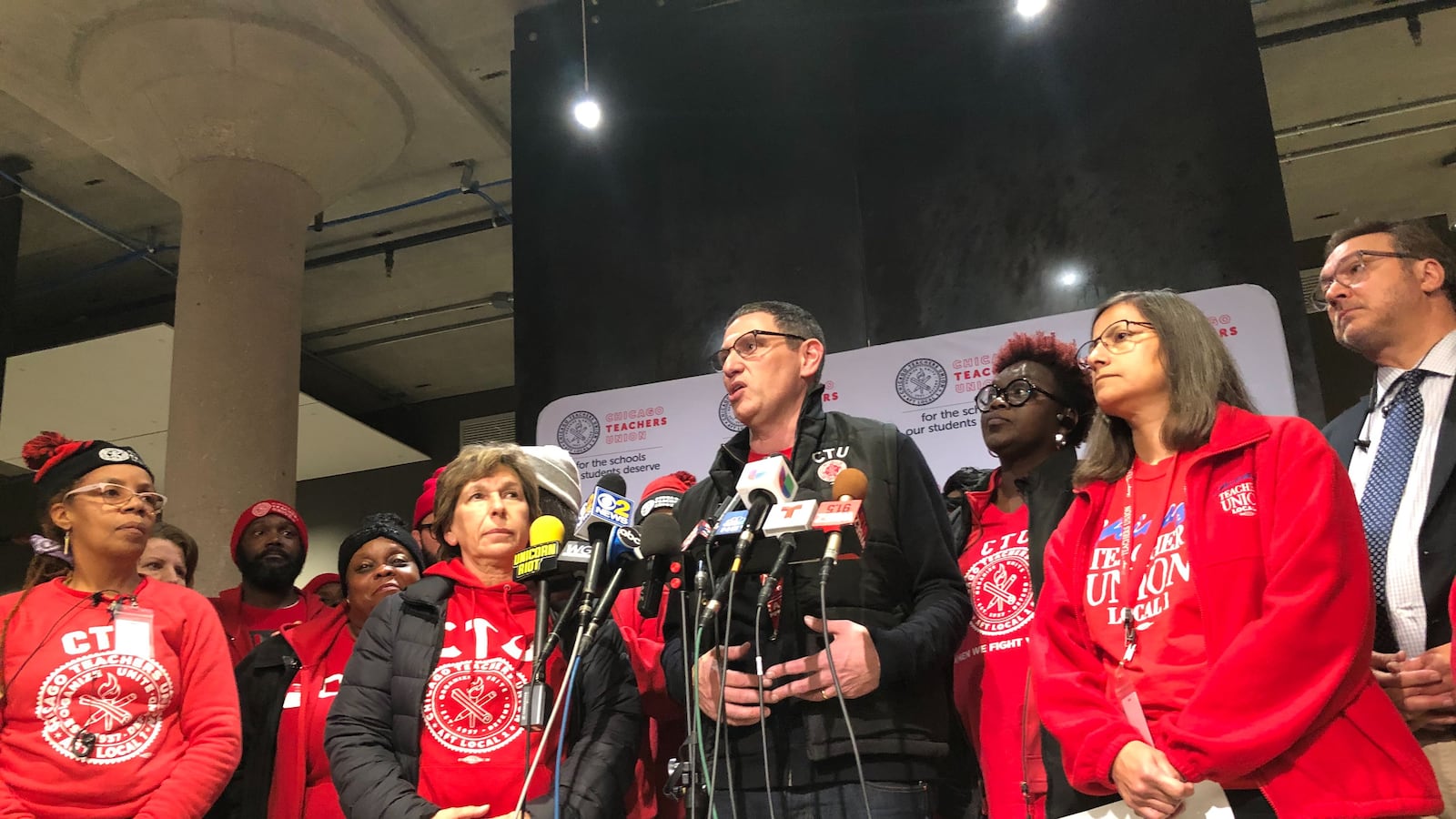Twenty-four hours before Chicago teachers will be asked to vote on a five-year contract deal, there is still no resolution between the district and the union’s bargaining team over a core issue: how to parcel out $5 million in annual raises for veteran teachers.
The union wants the money paid out according to “steps” — that is, automatic raises that teachers earn with years of service — rather than by bonuses. The city has not committed to doing so, according to Chicago Teachers Union officials.
Chicago Public Schools did not immediately respond to a request for comment.
The veteran pay issue was discussed at length among union delegates and leaders at a meeting Tuesday night, according to Eric Ruder, a spokesman for the union.
If it is not resolved before Thursday, teachers will have to vote on a contract with some open questions. “It’s not unusual,” Ruder said, for some aspects of an agreement to be settled after ratification.
“We know that we will get the money for the pay tables, but we just don’t know exactly how it gets in there — for example, how big the steps are,” Ruder said.
The lingering issue could sway some union members’ votes. Veteran pay is a sticking point for some teachers in advance of the ratification vote, according to a Chalkbeat survey of dozens of teachers last week.
How the money is distributed makes a big difference for the teachers who get it. Pay resulting from steps factors into teachers’ pension; bonuses do not.
The union is encouraging its members to ask delegates or field representatives if they have questions.
Chicago teachers will vote Thursday and Friday by secret ballot on the tentative agreement that ended an 11-day strike. The agreement, which the union’s 700-member House of Delegates authorized with 60% of the vote, has critics among the rank-and-file. (In contrast, the House of Delegates voted almost unanimously to endorse the deal that ended the city’s 2012 teachers strike.)
In Chalkbeat’s survey, 58% of teachers said they did not feel positive about the outcome of the strike and said the agreement would not improve their jobs.
Only a simple majority of union members voting on the contract needs to endorse it for it to be ratified. If the vote fails, negotiations would continue. The House of Delegates would have to meet again within the span of five days to authorize another strike.
A key union demand, the raises surfaced publicly in the last few days of negotiations between the union and Chicago Public Schools. The sides eventually settled on tacking on $5 million annually for pay raises for veteran teachers with 14 years or more experience, to total $25 million over the five-year contract.
The previous contract’s pay schedule provided regular pay bumps for the first 12 years of experience, but increases are sporadic until teachers reach major benchmarks every five years or so. For example, a teacher with 15 years experience sees less than $200 added onto her base salary the following year before cost-of-living raises, according to analysis from the National Center on Teacher Quality.
The conversations were ongoing on Wednesday and resolution could still be reached in advance of the vote, Ruder said.

